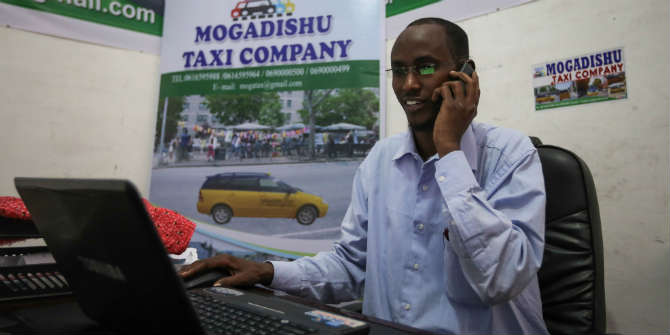The same historic factors that led to Sudan’s ousting of Omar al-Bashir create challenges for building a new society. To achieve liberal democracy, Sudan must look beyond elite interests to reach political agreement for a future based on diversity and pluralism.

Following a military coup in 1989, civil order in Khartoum gave way to three decades of political corruption, a crumbling infrastructure, the incalculable costs of civil war and an indictment for crimes against humanity. With Sudan’s physical, human and social capital destroyed and development opportunities squandered, a currency free-fall and a sharp rise in the price of bread marked a political finale in April 2019 for Omar al-Bashir.
South Sudanese oil had been critical to the survival of al-Bashir’s presidency. As domestic output and world oil prices rose sharply between 1973 and 1980, rapid economic growth followed over this brief period, albeit increasingly compromised by civil insurrection. As years of conflict finally ended with peace in 2005, a subsequent referendum led to the secession of South Sudan in 2011.
Thereafter, the most significant economic activity for the North has been to recoup oil export fees paid by the South pro-rata on oil exported across northern territory. Ostensibly as a ‘transitional financial arrangement’ (TFA), the rationale for those fees was to compensate for the loss of Southern oilfields and for the investment that had been sunk by the North into their development.
As oil prices fell below US$30 a barrel, the case for renegotiating the TFA became compelling. After five years of forced suspension, a new agreement in August 2018 saw the resumption of oil exports at some 40% of their earlier volume.
Although Washington had lifted decades-old sanctions in October 2017, Sudan remained on its list of ‘state sponsors of terrorism’. There remained little prospect of financial borrowing, of receiving aid from international institutions, or of any abatement of its foreign currency crises.
At the end of 2017, with the official exchange rate set at 6.7 Sudanese pounds to the dollar, the unhelpful platitude from the International Monetary Fund was that ‘a unified and market-determined exchange rate is key to further reducing external imbalances and boosting competitiveness, investment, growth and fiscal revenues’. In December 2018, black market trading saw the currency slump to 60 Sudanese pounds to the dollar, against the official rate of 47.5.
Sudan’s emerging political challenge is a direct consequence of the economic crisis that has started to destabilise the economy. The loss of oil revenue from the South means that Sudan’s main source of hard currency is lost, which created downward pressures on the local currency and hence inflation on the price of all goods, especially those imported. Moreover, such loss came at a time when resources were much needed to fund army and other operations in various conflicts and maintain security to keep the government in power.
Loosely organised by the Sudanese Professional Association, street demonstrations in the run up to and following al-Bashir’s ousting have drawn growing support. A protracted celebratory mood currently restrains action by the transitional military council. Where the termination of Bashir’s rule was hard won, new structures of civilian rule are likely to be more challenging. Al-Bashir’s deposition leaves unaddressed and unresolved an obvious clash between Western precepts of liberty, equality and justice and traditional Sharia values.
In representing that schism as an illustration of the broadest of political perspectives, it is necessary to look no further than UK’s Westminster on Brexit to understand how much easier it is to reach agreement on what to reject than on what to accept. Few would worry that the ‘Sudanese Revolution’ has found success in ousting a regime condemned for corruption, repression and a failing economy, but what is likely to follow? Who would be surprised if the alternative to the ‘power base’ now deposed is another of a similar kind?
After independence in 1956, the control of the army, the civil service and the economy went to the northern elites. As Arab nationalism and political Islamism mobilised support in the face of governance and development failings, there emerged a single party structure supported by a fragile representation of tribal, sectarian, ethnic and regional interests.
Even if there was overwhelming support for a new radical regime of liberal democracy, the essential structures are not in place. Liberal market processes are possible only by legally enforcing property rights backed by a common consensus among the people. When legal structures lose much of their relevance, opportunities open for the exercise of raw power twinned with political muscle.
Having endured decades of brutal autocratic rule, the brave took to the streets. As they stood their ground, more eventually followed to gain the tipping point of regime change, but one that was quickly followed by warnings of zero tolerance as new leaders imposed a state of emergency and suspended the constitution.
It is because Sudan has failed to develop an effective political answer to the problems of diversity and pluralism, that the outlook is bleak. The critical requirements are lacking, be it for an organised and aligned opposition, operational and effective institutions or an administration free of corruption and staffed by qualified professionals whose interest is to make best use of the country’s natural and human resources.
Dr. Marwan Izzeldin is an associate professor in the Department of Economics at Lancaster University where he is also the Director and Founder of Gulf One Lab for Computational and Economic Research. He holds a PhD in Finance from Cass Business School, London City University and is actively engaged in several consultancy, training and research programmes in the Gulf Co-operation Countries and Africa.
The views expressed in this post are those of the author and in no way reflect those of the Africa at LSE blog, the Firoz Lalji Centre for Africa or the London School of Economics and Political Science.





